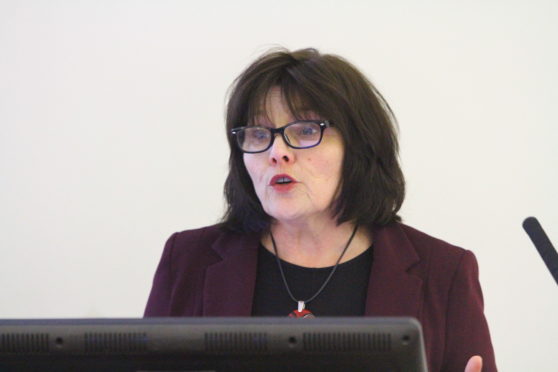Health Secretary Jeane Freeeman has pledged a “comprehensive response” to concerns about the birth of twin babies 50 miles apart in Golspie and Inverness.
Ms Freeman has promised to discuss emergency transfers of pregnant women with NHS Highland and the Scottish Ambulance Service.
Her pledge was made in a letter to Highlands Labour MSP Rhoda Grant, who wrote to the Health Secretary demanding a risk assessment into how pregnant patients are transported.
Ms Grant has raised concerns about the journey undertaken by a mother-to-be who went into labour in Caithness.
An attempt to transfer her the 100 miles to Raigmore Hospital in Inverness, was interrupted when the ambulance stopped at Golspie hospital for her first twin boy to be delivered.
The second twin was delivered in Raigmore when the ambulance journey was resumed after the first birth.
At one stage the air ambulance was summoned, but plans to airlift the patients were abandoned. Mother and babies are doing well after their ordeal, but concerns have been raised over the journey.
Ms Freeman’s reply to Ms Grant said: “Your letter raises a number of concerns, particularly around the emergency transfer of pregnant women in Caithness by SAS and training and equipment provision for obstetric emergencies in the area.
“As you will agree, patient safety is paramount, both for delivering mothers and their babies, which is why I am raising the concerns detailed in your letter directly with the health board and SAS to obtain assurance that service delivery is of the high quality expected by and for pregnant women in Scotland.”
The Health Secretary added: “I will write to you again following these discussions to provide a comprehensive response to the issues you raised.”
A NHS Highland report into the incident acknowledged the mother’s “unusually stressful” ordeal, but maintained proper procedures were followed.
Last night Ms Grant said: “There must be a full risk assessment carried out on what transport can be used and when and what craft is suitable for airlift in emergencies with pregnant women.”
An ambulance service spokeswoman said: “The recent review into this case highlighted the extremely difficult circumstances and that the staff involved acted professionally, and followed correct procedures in the best interests of their patient.
“However, we are currently working with our partners at NHS Highland to provide a comprehensive response to the questions raised, including any lessons to be learned and will respond shortly.”
